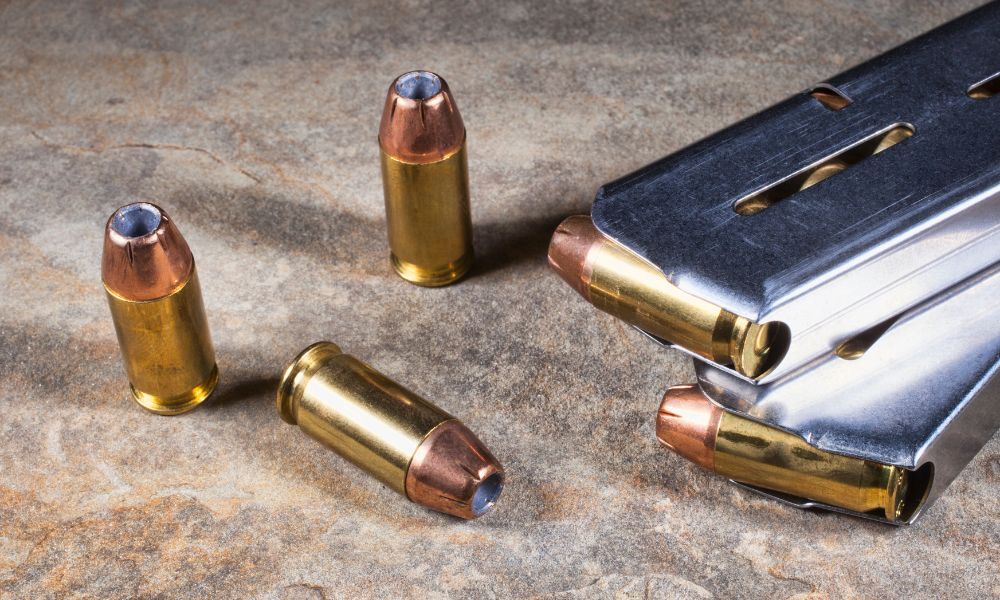Illegal Handgun Ammo: What's Banned in the U.S.?
Posted by Arms Protection on Aug 27th 2025
Navigating the complex world of firearm laws can be challenging, and ammunition is no exception. While most common handgun ammunition is perfectly legal for purchase and use, there are specific types of ammunition that are restricted or outright banned at both the federal and state levels. These regulations are primarily in place to protect law enforcement officers and the public from unusually dangerous projectiles that serve no legitimate sporting or self-defense purpose. Here's a breakdown of the types of ammunition that are generally illegal for handguns in the United States.
Federal Law: The Ban on "Armor-Piercing" Handgun Ammunition
The most significant federal restriction on handgun ammunition is the prohibition on "armor-piercing" rounds. The Gun Control Act of 1968, as amended, defines and regulates this type of ammunition. A key element of this law is its focus on ammunition that can be used in a handgun and is designed to penetrate a protective vest. Under federal law, armor-piercing ammunition is defined as:
- A projectile or projectile core that can be used in a handgun and is constructed entirely from one or a combination of specific hard metals, such as tungsten alloys, steel, iron, brass, bronze, beryllium copper, or depleted uranium.
- A full-jacketed projectile larger than .22 caliber that is designed and intended for use in a handgun, and whose jacket weighs more than 25% of the total weight of the projectile.
This federal law prohibits the manufacture, importation, and sale of this ammunition, with some exceptions for law enforcement and military use. While the law is clear, its application can be complex, especially with the rise of modern firearms like AR-15 pistols, which can fire rifle-caliber ammunition from a handgun platform. This has led the Bureau of Alcohol, Tobacco, Firearms and Explosives (ATF) to classify some traditionally rifle-caliber projectiles as "armor-piercing" when they can be used in a handgun.
State and Local Laws: A Patchwork of Regulations
In addition to federal laws, many states and local jurisdictions have their own, often more restrictive, regulations on ammunition. These laws vary widely, so it's crucial to check the specific regulations in your area.
Explosive and Incendiary Ammunition
Explosive or incendiary ammunition, designed to detonate or ignite upon impact, is largely prohibited. These are often seen as having no legitimate sporting purpose and are banned in many states. For instance, "Dragon's Breath" shotgun shells, which shoot a spray of sparks and flames, are illegal in several states, including Florida, Illinois, and Iowa.
"Unconventional" Projectile Types
Some states have outlawed specific, unusual types of ammunition by name or description. These are often projectiles that are not standard bullets and are considered to pose a unique danger. Examples include:
- Flechette bullets: These rounds fire multiple small, dart-like projectiles. They are illegal in California, Florida, and Illinois.
- Bolo ammunition: Consisting of two or more projectiles connected by a wire, bolo ammunition is illegal in states like Florida and Illinois.
Hollow-Point Ammunition
The legality of hollow-point ammunition is a common area of confusion. While widely used and legal for self-defense and hunting in most of the United States, a few states have specific restrictions. New Jersey, for example, has strict laws regarding hollow-point ammunition. While it's legal to possess them in your home, at a shooting range, or when hunting, transporting them for other purposes is highly regulated.

Other State-Specific Bans
Beyond these categories, states can have unique laws targeting other types of ammunition. These can include:
- Teflon-coated bullets: Some states have regulations against these, which were at one point marketed as being able to penetrate bullet-resistant materials.
- "Large Caliber" Ammunition: States like California and Connecticut have restrictions on certain large-caliber ammunition types, often with specific definitions.
- Magazine Capacity: While not ammunition itself, many states have laws restricting the capacity of handgun magazines, which directly impacts the number of rounds a person can possess at one time.
Traveling with Ammunition: The Importance of Knowing the Law
The varying state laws create a significant challenge for gun owners traveling with their firearms and ammunition. What is legal in one state may be a felony in another. The Firearm Owners' Protection Act (FOPA) provides some protection for individuals transporting firearms and ammunition through states where they would otherwise be illegal, but this protection is limited. You must be in a vehicle, the firearm and ammunition must be unloaded and locked in separate containers, and you must be traveling directly from a place where possession is legal to another place where it is legal. Even with FOPA, some states have been known to arrest and prosecute travelers, making it a risky endeavor.
The Bottom Line
The legality of handgun ammunition in the U.S. is a complex issue governed by a patchwork of federal, state, and local laws. While standard ammunition is generally unrestricted, a few specific types of rounds are illegal due to their potential to defeat body armor or their classification as unusually dangerous. Before purchasing or using any ammunition, especially types that seem unconventional or specialized, it is essential to:
- Understand Federal Law: Be aware of the federal ban on "armor-piercing" handgun ammunition and the specific definitions used by the ATF.
- Check State and Local Regulations: Do your research to ensure the ammunition you intend to use is not prohibited in your state or local jurisdiction.
- Consult Reliable Sources: Refer to official government websites, such as the ATF, and legal resources to stay up-to-date on the latest regulations.
Ignorance of the law is not a defense, and possessing or using illegal ammunition can result in serious legal consequences. By staying informed, you can ensure you are in compliance with all applicable laws and regulations.

